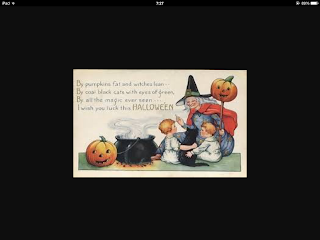Feelings & Emotions Vocabulary
[Note: This vocabulary pronunciation is in American English]
Emotions vocabulary words can be really important in describing how we feel and how others are feeling. Most of us know the emotional states happy and sad, but what about determined and resentful? Hopefully this list of words will help expand your vocabulary.
The video provides a chance to hear each word pronounced and there is a pause after each word so that you can say the words to practice your pronunciation.
When you're finished, leave a comment below to let us know how you are feeling today.
Definitions of Emotions Vocabulary
Now that you've heard the words pronounced, you may still need some help with the definitions of these emotions vocabulary words. Some of the words are similar. All are just various degrees of our positive and negative feelings and emotions.
feeling fear or being worried about something.
| |
to feel entertained so that you laugh or smile at something.
| |
to feel dislike because of something or someone, to feel annoyed.
| |
to feel slightly angry or irritated at someone.
| |
feeling great shock or disgust at something or someone.
| |
feeling great surprise.
| |
feelings of great respect and a little fear because you really respect someone.
| |
tired and annoyed because you are uninterested in something.
| |
very serious, sad and threatening.
| |
wanting to have an argument or fight with someone.
| |
calm and having one's feeling under control.
| |
not able to think clearly or understand.
| |
(contented / content / contentment)
feeling happiness or satisfaction.
| |
(curious / curiosity)
wanting to know about something or someone.
| |
(delighted / delight)
very pleased or happy.
| |
sad and without hope.
| |
feeling very strongly that you will do (complete) something you decided to do.
| |
feeling sad and unhappy that something did not happen or did not happen in the way that you wanted or expected.
| |
a strong feeling of disapproval or dislike, especially for something that looks, smells, tastes (etc.) unpleasant.
| |
extremely tired, completely without energy.
| |
very happy and excited.
| |
feeling thankful for something.
| |
feeling pleased or pleasure.
| |
very strong dislike.
| |
full of hope, feeling that something you want is going to happen.
| |
in a state of uncontrolled laughter or extreme excitement.
| |
very angry because of something that is unfair or wrong.
| |
a feeling of hatred or strong dislike.
| |
not being too proud or talking very much about your abilities, qualities or possessions.
| |
a strong feeling of shock and anger.
| |
unhappy.
| |
feeling happy about something that happened or pleased that you did something the way you wanted to.
| |
calm and peaceful.
| |
feeling nervous or uncomfortable meeting or talking to other people.
| |
playful, having fun and not serious.
| |
behaving in a secret and dishonest way.
| |
feeling or showing surprise about something you did not expect to happen.
| |
sad and crying or feeling ready to start crying.
| |
very quiet and not wanting to talk to others.
| |
a feeling caused by seeing something amazing, beautiful, special or surprising.
|
So.... how are you feeling today? Leave me a comment below!
I hope that review of emotions vocabulary was helpful. Now, it's your turn. So how are you feeling today? Leave a comment below to practice your English. Remember, practice is the only way to improve your English!










New! Comments
Have your say about what you just read! Leave me a comment in the box below.